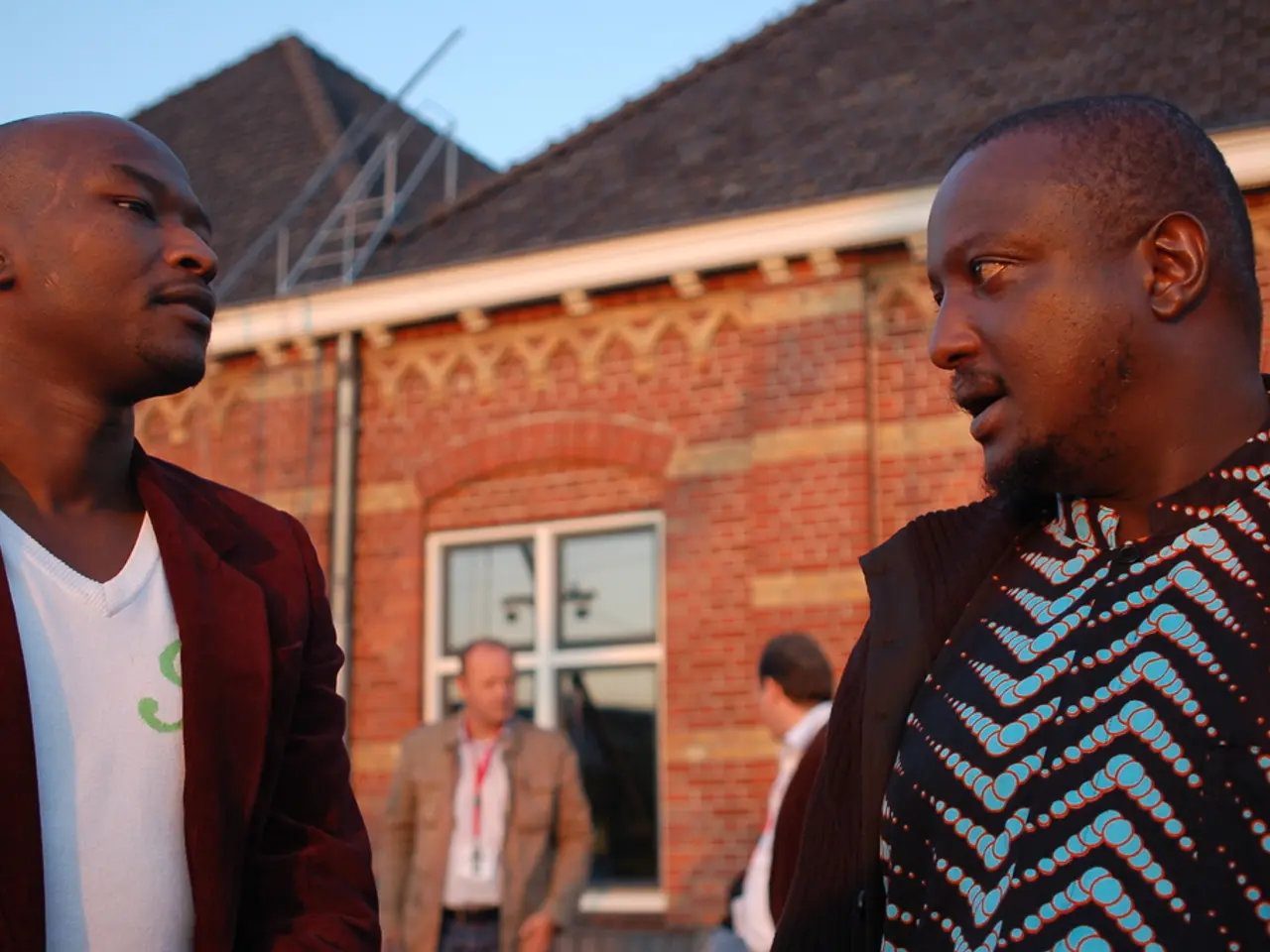Decision on the application of the directive has yet to be finalized by the Commission.
Chaos in the Bundestag: Reichinnek's Controversial PKGr Nomination
It's all heating up in the German Bundestag with Lars Castellucci, SPD's interior affairs expert, advocating for the election of Left Party's Heidi Reichinnek to the Parliamentary Control Panel (PKGr). Unlike his Union colleagues, he believes Reichinnek is a suitable candidate. "She's got the chops, unlike the AfD candidates," he told the German editorial network (RND). "Democracy needs watchdogs, and opposition parties are part of that equation."
Today, the Bundestag will elect members for the committee responsible for overseeing the intelligence services. The panel, which meets in secrecy, will have nine members. Two seats are reserved for the AfD, one for the Left Party, nominating Reichinnek.
However, the Union isn't so keen on the idea. CSU faction leader Alexander Hoffmann told "Der Spiegel" that Reichinnek isn't suitable for such a sensitive committee, stating, "We don't need party-political fireworks in a panel handling national security."
Despite resistance, the Left Party is counting on Union votes to get Reichinnek into the PKGr. If neither she nor the AfD candidates are elected, the Green Party's Konstantin von Notz would be the lone opposition representative.
Reichinnek: Playing Hardball
If the Union refuses to support her, Reichinnek isn't afraid to pull the plug on cooperation. "The Union needs to cease their baseless attacks and allow Die Linke a fair shot at the PKGr," she told RND. " If they don't, we might need to reassess things."
Reichinnek emphasized the Union's dependence on Die Linke in crucial areas, such as the election of constitutional judges and the reform of the debt brake.
Kuhle: Fearing Weakened Oversight
FDP's interior affairs politician Konstantin Kuhle warned of weakened intelligence service oversight if not only the AfD candidates, but also Reichinnek, fail to be elected. He told "Der Stern" about the repercussions.
"The opposition's control over the government and the parliamentary majority will be reduced to a single member of parliament," criticizes Kuhle, a former member of the PKGr. "That's not the way, especially in times of international crises."
The chair of the PKGr will be taken over by the North Rhine-Westphalian CDU's Marc Henrichmann. The previous chair, Roderich Kiesewetter (CDU), was not renominated by his faction. Former SPD deputy Ralf Stegner will also no longer be a member.
The Heart of the Matter
The controversy over Reichinnek's nomination stems from political disagreements over family reunification policies for individuals with subsidiary protection. The SPD is threatening to block her nomination due to disagreements associated with the suspension of family reunification measures. This conflict has led the SPD to consider withholding support for Reichinnek's role on the PKGr, which oversees intelligence agencies and handles national security matters.
Reichinnek gained significant public attention and support through a notable speech condemning cooperation between mainstream parties like the CDU and the far-right AfD, especially regarding immigration policies. This speech boosted Die Linke's support, particularly among younger voters. However, the party's leftist stance and its opposition to mainstream immigration restrictions contrast with the SPD's more centrist or coalition-aligned positions, amplifying tensions in nominations to sensitive parliamentary posts such as the PKGr.
In brief, the main reasons for the controversy are:- SPD's opposition to Die Linke's position on family reunification policies.- The SPD threatening to block Reichinnek's nomination due to coalition frictions.- The sensitive nature of the Parliamentary Control Panel's work, which demands broad political trust.- Broader political tensions stemming from Die Linke's confrontational stance on immigration and cooperation with extremist parties.
These factors collectively explain why Heidi Reichinnek's election to the Parliamentary Control Panel has become a contentious issue in German politics.
- The ongoing debate over Heidi Reichinnek's nomination to the Parliamentary Control Panel (PKGr) highlights the controversial intersection between policy-and-legislation and politics, with key discussions centered around family reunification policies for individuals with subsidiary protection.
- If elected, Reichinnek could introduce party-political dynamics into the PKGr, a panel handling national security matters, which some, like FDP's Konstantin Kuhle, fear could undermine the general-news of strong oversight on intelligence services.








